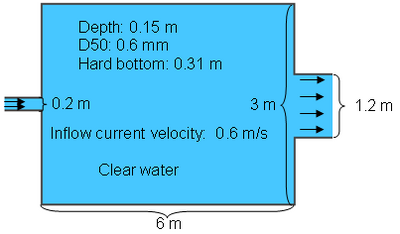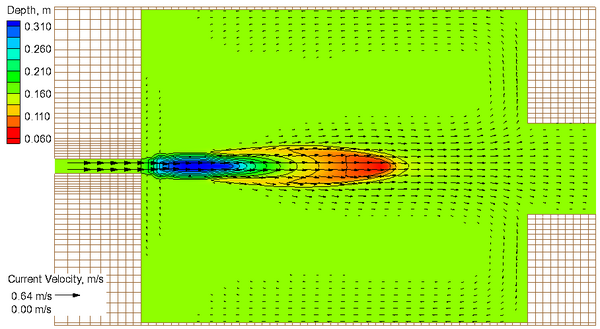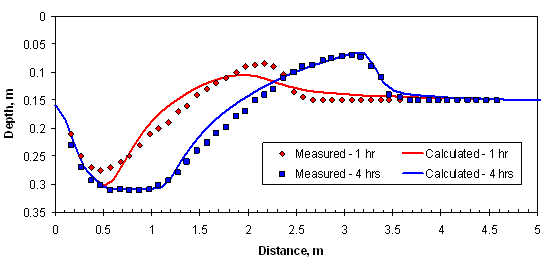Clear water jet: Difference between revisions
No edit summary |
|||
| Line 8: | Line 8: | ||
The figures below show a comparison between measured and computed bed elevations. | The figures below show a comparison between measured and computed bed elevations. | ||
[[Image:Thuc_Depth4hrs.png|thumb|left| | [[Image:Thuc_Depth4hrs.png|thumb|left|600px| Figure 2. Computed bed elevations and current velocities at t=4 hrs.]] | ||
<br style="clear:both" /> | <br style="clear:both" /> | ||
[[Image:Thuc_Bed_Elevation.png|thumb|left| | [[Image:Thuc_Bed_Elevation.png|thumb|left|600px| Figure 3. Computed and measured bed elevations at t=1,4 hrs.]] | ||
<br style="clear:both" /> | <br style="clear:both" /> | ||
Revision as of 17:24, 26 August 2010
Setup
The rectangular flume has a narrow 0.2 m-wide inlet and a 3 m-wide outlet. The initial water depth was 0.15 m with a 0.16 m layer of 0.6 mm sand over a concrete bottom. The flume was 5 m long and 4 m wide. The measured sand settling velocity of 0.013 m/s was used. The computational mesh consisted of 62 rows and 69 columns (Figure 2). The computational time was 30 seconds. The transport equation which best fit the measurements was the Soulsby-van Rijn (1997).

Results
The figures below show a comparison between measured and computed bed elevations.


References
Soulsby, R. (1997) "Dynamics of marine sands" Thomas Telford Publications, London, ISBN 0 7277 2584 X. Thuc, T. (1991) “Two-dimensional morphological computations near hydraulic structures”, Doctoral Dissertation, Asian Institute of Technology, Bangkok, Thailand.